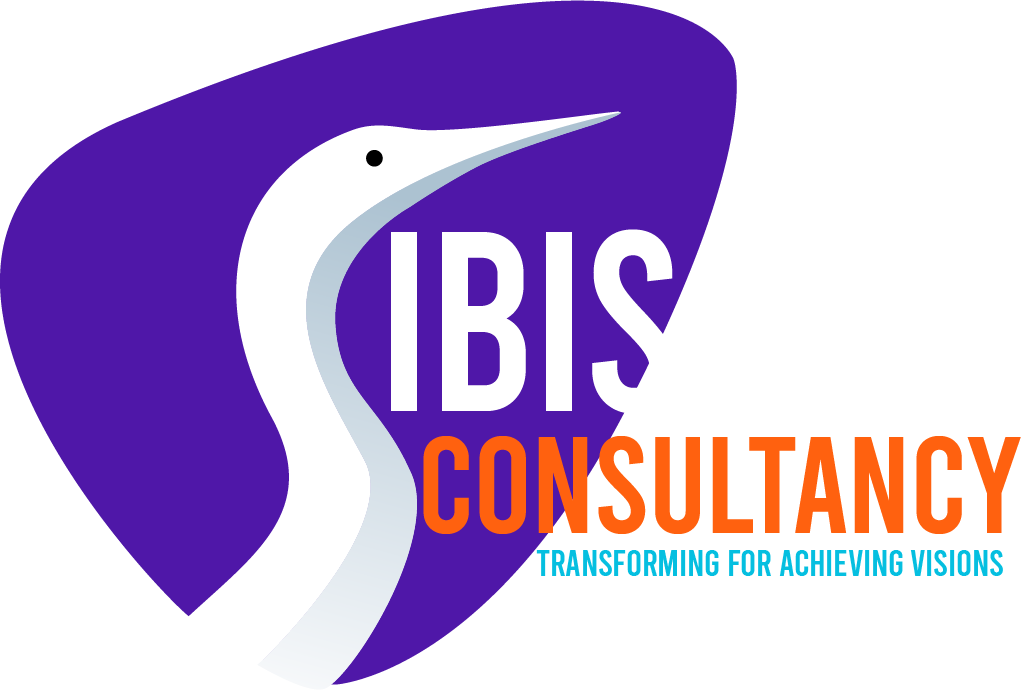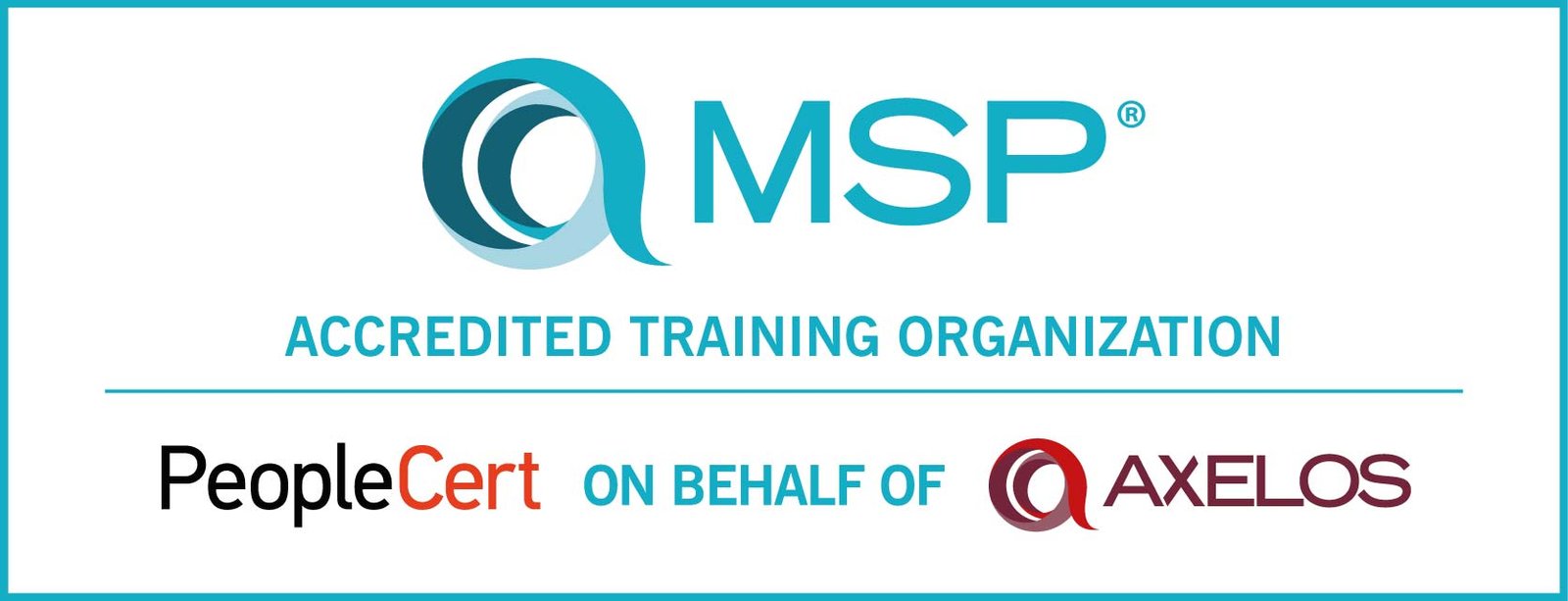MSP® 5th Edition Practitioner
- Course Duration: 24+h
- qualification: MSP®
About this course
Introduction
The Managing Successful Programmes (MSP) methodology offers a structured approach to effective program management.
MSP provides a set of proven principles and processes to help managers break down complex programs into projects that are not only more manageable but also perfectly aligned with business goals.
More about the course
The MSP Practitioner course is designed to build on the content covered in the MSP Foundation course.
It provides an opportunity for learners to deepen and embed their knowledge so that they are ready to confidently apply their skills in practice.
The MSP online course asks learners to create, apply, and amend MSP strategies to allow them to demonstrate their expertise.
Since MSP is renowned for its flexibility, practitioners can utilize the methodology in a variety of industries and sectors.
MSP can also be used for risk and change management and can be easily applied to improve customer experiences.
Benefits for Individuals
MSP practitioners are able to make valuable contributions to program teams in various advisory, support, and management roles.
They can explain and apply MSP Principles, Governance Themes, and Transformational Flows and manage the inter-relationships between each.
They can also adapt their MSP knowledge to any given scenario, and can expertly handle stakeholder relationships.
A certified program manager is an incredible asset to transformational change programs.
Experienced MSP-certified professionals can also enjoy major career advantages, including higher pay and access to higher-ranking roles.
Benefits for Organizations
Getting a program team certified in MSP will give them the benefit of being able to follow a common language and approach for robust program management. This streamlined setup will decrease errors and miscommunication while boosting productivity across the program lifecycle. The team will also be more likely to finish programs on time, within budget, and with full awareness, involvement, and support from stakeholders.
Course Outline
This module explores the key concepts of MSP, as well as common drivers for change programs.
Learners will study the roles involved in program governance throughout the program lifecycle and the importance of business alignment.
This module examines the key concepts of ‘Organization’ within program governance, as well as the role of the ‘Program Office’.
It also covers the activities carried out by program members, including transformational flow activities.
This module explores vision statements, including reasons to keep them unchanged as well as their development and maintenance.
This module examines the stakeholder engagement cycle, including its contents and the most important factors to consider.
Learners will become familiar with the strategy for stakeholder engagement and management, along with the stakeholder map.
They will also cover the program communications plan, alongside change management and the interest/influence matrix.
The roles involved in stakeholder management are also explored, along with the transformational flow activities within the ‘Leadership and Stakeholder Engagement’ Governance Theme.
This module covers the key drivers for the Governance Theme of ‘Benefits Management’, along with various benefits categories.
These include benefits measurements, financial impacts, and the corporate objectives supported by program benefits.
The contents and format of benefits management strategies, maps, profiles, and realization plans are also explored.
This module examines the main characteristics of the Governance Theme ‘Blueprint Design and Delivery’.
It covers the importance of collaboration with other Governance Themes, as well as alignment with necessary documents.
‘Options analysis’ is also described, along with the process of arranging solutions into projects, tranches, and workstreams.
This module explores the key concepts of ‘Planning and Control’.
These include monitoring and controlling strategy, program and project plans, as well as dossiers and project briefs.
It also covers resource management planning and strategy, along with benefits profiles and realization planning.
The application of the Planning and Control guidance for each role throughout the program life cycle is also examined.
This module covers the purpose and principles of program risk management, including the principal areas of risk.
It details the contents of the issue and risk registers, as well as their management strategies.
Risk and issue management frameworks and cycles are also examined, along with configuration management and change control steps.
The module then looks at risks and issues from the perspective of each role in the lifecycle of a program. It also examines risk attitude and tolerance.
This module looks at the relationships between a business case and the Principles of MSP.
The key program information documents that must be addressed in response to significant changes to the business case are also examined.
Finally, the module looks at the application of business case guidance for each role in the program life cycle.
This module covers the key concepts of ‘Quality and Assurance Management’, including the plans and strategies for information, quality, and assurance management.
It describes the techniques used to enable optimal program delivery, as well as successful health checks and maturity assessments.
Information management systems are also explored, along with the roles and responsibilities involved with the Governance Theme.
This module covers the key concepts of the ‘Transformational Flow’ and its six processes.
It explores the roles and responsibilities within the processes.
The core documents and the information required for their completion are then examined, including the program mandate and brief.
The formal approvals required during a program and the reasons for program closure are also covered.
Practice Exam Simulators
Learners have the opportunity to complete a number of practice exams that simulate the official MSP Practitioner exam.
Assessment
The course includes an exam voucher for the MSP Practitioner examination. This can be taken virtually online using a service provided by PeopleCert.
It is important to note that individuals must hold an MSP Foundation certificate to be eligible to take the Practitioner examination.
Exam format:
- Objective testing
- Eight questions per paper, 80 marks available in total
- 40 marks required to pass – 50%
- 150 minutes/2.5 hours
- Open book (only the provided printed hard copy of the ‘Managing a Successful Programme Guide’ is allowed)
- Online Proctored exam
What do you get?
- 6 months’ access from point of purchase to complete your training
- 14+ hours of online training content
- Free exam voucher
- Access through multiple devices
- Offline player for studying on the move
- Tutor support
FAQs
What is MSP?
‘MSP’ or ‘Managing a Successful Programmes’ is a structured methodology for effective program management. It is a proven and established methodology that provides key program management Principles, Governance Themes, and Transformational Flows.
Is MSP suitable only for IT projects?
No, MSP is a generic methodology that can be applied to a project of any nature across any business sector.
Who owns MSP?
MSP is owned by AXELOS Ltd. It is a certification scheme that carries three levels: Foundation, Practitioner, and Advanced Practitioner.
Is this MSP course accredited?
Yes, this MSP Practitioner course has been accredited by AXELOS Ltd.
What are the prerequisites for this course?
To book and take the MSP Practitioner examination, you must produce proof of having passed the MSP Foundation examination.
What is the duration of this course?
The seat time of the course is approximately 14 hours. This is an estimate of how long it will take to cover all the learning modules, revision modules, module-level assessments, and mock exams.
How long can users access this course?
Learners receive six months of access from the purchase date of the course.
How long is the exam voucher valid for?
The exam vouchers are valid for 12 months.
How can the exam be taken?
The course includes an exam voucher for the MSP Practitioner certification examination. The exams can be taken virtually online using a service provided by PeopleCert.
Please ensure your device meets the system requirements before booking your exams. You can do this via this online test. Please visit the PeopleCert website for more information and guidance.
Does the course include a manual?
The course does not require a manual. However, you can complement your training with the official MSP manual, ‘Managing Successful Programmes 2011 Edition’.
What is an exam simulator?
The purpose of the exam simulator is to provide learners with a simulated environment for taking mock exams. This can help them prepare for the official certification examinations. The mock exams are official exams provided by AXELOS. They are also timed and scored on the simulator.
What is a revision module?
The revision module is designed to provide learners with a summarized revision of the key topics covered in the course. The module also includes tips and guides that can help learners with their exam preparation work.
What you will learn
Advanced Programme Management Principles:
- Deepen your understanding of programme management principles and how to apply them in complex and challenging environments.
Application of MSP® Principles, Themes, and Processes:
- Develop practical skills in applying MSP® principles, themes, and processes to real-world programme management scenarios.
Managing Programmes:
- Learn how to manage programmes effectively, from planning and execution to monitoring and controlling, to ensure the achievement of programme objectives and benefits.
Leading Programme Teams:
- Gain insights into leadership techniques and strategies for leading and motivating programme teams to achieve programme goals and deliver successful outcomes.
Managing Stakeholder Engagement:
- Explore advanced stakeholder engagement techniques for engaging and influencing stakeholders at all levels throughout the programme lifecycle.
Managing Programme Risks and Issues:
- Develop advanced skills in identifying, assessing, and managing programme risks and issues to minimize their impact on programme delivery and outcomes.
Quality Management in Programmes:
- Understand how to ensure the quality of programme deliverables and outcomes through effective quality management practices.
Business Case Development and Benefits Management:
- Learn advanced techniques for developing business cases, defining benefits, and managing benefits realization throughout the programme lifecycle.
By completing the MSP® 5th Edition Practitioner course, participants will have developed advanced skills and knowledge in programme management, enabling them to effectively lead and manage programmes, deliver successful outcomes, and drive organizational performance and success.
Benefits of this course
Advanced Skills Development:
- Participants deepen their understanding of programme management principles, themes, and processes, and develop advanced skills in applying MSP® principles to real-world programme management scenarios.
Enhanced Career Opportunities:
- Certification as an MSP® Practitioner enhances career opportunities for individuals by demonstrating their proficiency in managing complex programmes and delivering successful outcomes.
Increased Confidence and Credibility:
- Completion of the MSP® Practitioner course instills confidence in participants’ abilities to lead and manage programmes effectively, enhancing their credibility as programme management professionals.
Improved Programme Management Practices:
- Participants gain practical knowledge and techniques for planning, executing, and evaluating programmes, enabling them to improve programme management practices within their organizations.
Alignment with Organizational Objectives:
- The MSP® framework helps organizations align programme management practices with strategic objectives, ensuring that programmes contribute to the achievement of organizational goals and benefits realization.
Better Stakeholder Engagement:
- Participants learn advanced stakeholder engagement techniques for effectively engaging and influencing stakeholders throughout the programme lifecycle, fostering collaboration and support for programme initiatives.
Enhanced Risk Management:
- Participants develop advanced skills in identifying, assessing, and managing programme risks, enabling them to minimize risks and disruptions to programme delivery and outcomes.
Improved Benefits Realization:
- Participants learn how to define, plan, and manage programme benefits effectively, ensuring that programmes deliver tangible value and benefits realization for stakeholders and the organization.
Increased Organizational Performance:
- By implementing MSP® programme management practices, organizations can enhance their performance by delivering successful programmes that achieve strategic objectives, maximize benefits, and optimize resources.
Continuous Improvement:
- The MSP® framework emphasizes the importance of continuous improvement, enabling organizations to refine programme management practices and drive ongoing success.
Overall, the MSP® 5th Edition Practitioner course provides individuals and organizations with the knowledge, skills, and tools needed to effectively manage programmes, deliver successful outcomes, and drive organizational performance and success at an advanced level.

